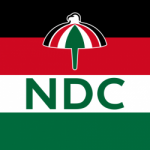Encouraging new data on a malaria vaccine from Oxford University bodes well for global effort to combat the mosquito-borne disease that kills a child every minute, its makers said on Wednesday.
After decades of work, the only approved malaria vaccine, Mosquirix, made by British drugmaker GS, was recently endorsed by the World Health Organization (WHO).

Oxford’s vaccine, called R21/Matrix-M, is likely more effective than Mosquirix in preventing the disease that kills about 600,000 a year despite roughly $3 billion spent annually on insecticides, bednets and anti-malarial drugs, Oxford scientist Adrian Hill said.
It also has a manufacturing advantage, he said, citing a deal with Serum Institute of India to produce 200 million doses annually, starting 2023.
In contrast, GSK has committed to produce up to 15 million doses of Mosquirix every year through 2028, well under than the roughly 100 million doses a year of the four-dose vaccine the WHO says is needed long-term to cover around 25 million children.
GSK has said it cannot make enough Mosquirix to meet the vast demand without more funds from international donors.
On Wednesday, data from a mid-stage study on more than 400 young children who received a fourth dose of the Oxford shot after the primary three-dose regimen was published in the Lancet journal.
Vaccine effectiveness was 80% in the group that received a higher dose of the immune-boosting adjuvant component of the vaccine, and 70% in the lower-dose adjuvant group, at 12 months following the fourth dose. The doses were administered ahead of the peak malaria season in Burkina Faso.























































![[FREE FREE MONEY] Predict and Win a Guaranteed GH¢200 From Us EVERY WEEK](https://wordpress.ghanatalksradio.com/wp-content/uploads/2022/02/Predict-and-Win-Final-09-03-2021-218x150.jpg)
![[Predict & Win – 8th/Oct.] WIN A Guaranteed ¢200 From Us This Week](https://wordpress.ghanatalksradio.com/wp-content/uploads/2021/10/maxresdefault-16-218x150.jpg)
![[Predict & Win – 2nd] WIN A Guaranteed ¢200 From Us This Week](https://wordpress.ghanatalksradio.com/wp-content/uploads/2021/09/maxresdefault-50-218x150.jpg)
![[Predict & Win – 25th] WIN A Guaranteed ¢200 From Us This Week](https://wordpress.ghanatalksradio.com/wp-content/uploads/2021/09/maxresdefault-36-218x150.jpg)
![[Predict & Win – 18th] WIN A Guaranteed ¢200 From Us This Week](https://wordpress.ghanatalksradio.com/wp-content/uploads/2021/09/maxresdefault-23-218x150.jpg)








![[National cathedral] See full list of churches that have contributed since 2018](https://wordpress.ghanatalksradio.com/wp-content/uploads/2020/09/Ghana-National-Cathedral-GhanaTalksRadio-100x70.jpg)



